Java development company
java development services
Java Software Development Services

Can your Java stack survive a 10x user spike?
Java is the core of modern business software—from banking platforms to booking engines. It is known for reliability, security, and cross-platform support, Java is the foundation behind millions of enterprise-grade applications. Java still remains one of the smartest choices if you’re building a scalable backend system, high-performance service, or large-scale business platform.
We specialise in Java software development for backend systems, enterprise applications, internal business tools, and cloud-native services. Whether you’re launching a new platform or improving an existing one, we build Java-based solutions that are stable, secure, and built to handle high scale / volume of users.
Many of our clients come to us when things start to break at scale—slow database queries, GC pauses causing downtime, or legacy Java EE systems blocking growth. We solve these problems through targeted interventions: optimising GC settings with G1/ZGC, breaking up monoliths into Spring Boot or Quarkus microservices, and fine-tuning Hibernate and database layers for faster response times.
We also modernize delivery pipelines—using GitLab CI/CD, Docker, and Kubernetes to ship features safely, with zero-downtime deployments.
If your business depends on a Java-based system—or you’re planning to build one—we help you do it right. Fast, stable, and ready for scale.

Here’s what that looks like in real numbers:
Under 100ms
GC Pause Time
Below 1.5s
Application Startup Time (CDS)
25% RAM
JVM Memory Usage ↓ Up to
< 200ms
JPA API Response Time
Download The Master Guide For Building Delightful, Sticky Apps In 2025.
Build your app like a PRO. Nail everything from that first lightbulb moment to the first million.
Make Your Java Stack - Work For You, Not Against You.
Codewave’s Java software development services are built for performance. We deliver clean, scalable code with 100% security patches and a sharp focus on real-world efficiency. You get faster builds, stronger uptime, and zero surprises.
When performance bottlenecks or manual workarounds start draining time and confidence, it’s often a sign your core systems need an overhaul. We build enterprise-grade Java applications that streamline operations, automate decisions, and scale with your growth.
We design backend engines that stay resilient—Real-time payments, supply chain visibility, or customer onboarding—even under unpredictable loads.
Using Spring Boot, async job queues, and modular hexagonal architectures, we build apps that are fast, secure, and easy to extend.
We also integrate JWT-based auth, rate limiters, and observability hooks—so you’re not just moving faster, but with full control and visibility across systems.
Example: A digital lending platform rolls out a fully automated loan origination system using Spring Boot, async workflows, and JWT-based access control—enabling real-time bureau checks, fraud detection, and under-2-minute loan approvals at scale.
Monolithic systems slow everything down—whether it’s shipping new features, recovering from outages, or scaling under pressure. We help you move fast again by decomposing legacy platforms into modular, Java-based microservices using Spring Boot or Quarkus.
Each microservice runs independently, with its own lifecycle, scaling rules, and failure isolation—so issues in one module never take down the whole system.
We build in Apache Kafka for async event flows, Resilience4j for circuit breaking and fallback strategies, and service discovery patterns using tools like Consul or Eureka—giving your system self-healing and elastic scale-out capabilities.
Example: An eCommerce platform transforms its legacy monolith by splitting catalog, cart, and payment flows into separate Spring Boot microservices. Now each team deploys independently, traffic-heavy services scale on-demand, and seasonal sales no longer cause slowdowns or outages.
We develop scalable RESTful and SOAP APIs that connect your applications with third-party services securely and efficiently. Spring Boot’s built-in JSON and XML support simplifies data exchange, ensuring fast communication between systems. OpenAPI documentation defines endpoints clearly, making API consumption easier for developers.
Rate limiting controls traffic spikes, preventing service overload, while OAuth 2.0 authentication ensures only authorized users access APIs. Redis caching reduces database queries, improving response times for high-demand APIs. We integrate APIs with payment gateways for instant transactions, CRMs for real-time customer insights, and ERPs for automated inventory updates, aligning every integration with business workflows.
For example, a travel booking platform integrates flight and hotel APIs for real-time availability. Customers see instant pricing updates, automated booking confirmations, and live itinerary changes, enhancing the user experience and reducing manual intervention.
Traditional Java apps often struggle in the cloud—overprovisioning resources, failing under load, or needing constant manual intervention. We build Java applications that are cloud-native from the start, using Spring Cloud, Docker, and Kubernetes to ensure your services auto-scale, self-heal, and stay lean under pressure.
We implement centralized config servers, container orchestration, and in-memory caching with Redis or Memcached—so your system responds fast and runs cost-efficiently, even during unpredictable spikes.
Example: A FinTech startup runs its payment engine on AWS with Kubernetes autoscaling. During IPO surges, the platform auto-scales in seconds and scales back overnight—cutting infra costs while maintaining real-time responsiveness.
Your business needs AI-driven automation, predictive insights, and real-time decision-making. We build Java-based AI and ML solutions using Deeplearning4j, Weka, and Apache Mahout to add features like recommendation engines, fraud detection, and NLP capabilities. Models train on distributed systems with GPU acceleration, ensuring fast and accurate predictions.
We customize AI models with TensorFlow’s Java bindings, use reinforcement learning for adaptive decision-making, and set up anomaly detection models to catch fraud before it happens. Our ML pipelines handle both structured and unstructured data, integrating seamlessly with your existing Java applications.
For example, a healthcare platform builds an AI-driven diagnostic system that analyzes patient records and predicts disease risks. Physicians receive automated alerts with recommended treatments, improving decision-making and patient outcomes.
Your business runs on real-time data, and you need instant processing, analytics, and decision-making. We build high-speed data pipelines using Apache Kafka, Apache Flink, and Java-based big data frameworks to handle continuous data streams. Our event-driven architecture ensures that every piece of data is ingested, transformed, and analyzed the moment it arrives.
Your system processes millions of events per second with Kafka Streams for distributed processing, Flink for complex event analytics, and Hazelcast for ultra-fast, in-memory computing. We set up custom data connectors to link with databases, IoT devices, and third-party services, keeping all your systems in sync.
For example, a stock trading platform processes real-time market data, executing trades based on AI-driven signals. Traders receive instant alerts on price fluctuations, ensuring split-second decision-making and risk management.
We automate your Java development pipeline so you can release updates faster without worrying about manual errors. Every code change goes through automated builds, testing, and security checks, making sure it’s stable before deployment. Your application scales automatically, handles traffic spikes, and stays up even during updates.
Your CI/CD process keeps everything running smoothly—new features roll out without downtime, and if something goes wrong, quick rollbacks prevent disruptions. Security checks catch vulnerabilities early, and automated infrastructure setup saves hours of manual work. Controlled releases ensure only tested updates reach users, so there’s no risk of broken features going live.
For example, a banking platform automates its deployment process, allowing frequent feature releases without downtime. Developers push updates confidently, testing is fully automated, and production rollouts happen without service disruptions.
Old Java systems—Java EE, Java 6/7, SOAP APIs—weren’t built for today’s speed or scale. We modernise these platforms by upgrading to Java 17+, modularising them into Spring Boot or Quarkus services, and rewriting slow or brittle components with scalable patterns.
We also transform legacy SOAP integrations into developer-friendly REST or GraphQL APIs, so your teams can move faster and your platform plays well with modern tools.
Example: A telecom platform migrates from Java 6 + EJBs to Spring Boot microservices. The result? Cold starts drop by 50%, integration partners onboard in days (not months), and the codebase finally supports CI/CD.
Java Bugs Breaking Products?
Our Java software development solutions are built for speed, stability, and scale. We ship high-performance apps with startup times under 3 seconds, so your users stay engaged and your product stays ahead—every single time.
Secure and scalable Java-based platforms handle high-volume transactions, fraud detection, and automated risk assessment. We use AES-256 encryption to secure user data, while PCI-DSS-compliant payment processing prevents unauthorized access. Event-driven architectures ensure real-time updates, reducing processing delays.
For instance, a digital bank integrates a rules-based fraud detection engine that monitors transactions in real-time. If an anomaly is detected, the system blocks the transaction, flags the account, and triggers an automated KYC verification before reactivation.
Distributed systems optimize inventory tracking, order management, and payment processing. We use Event-driven microservices to handle SKU updates across multiple warehouses, ensuring stock accuracy. API-driven payment gateways support multi-currency transactions with tokenized card storage for faster checkouts.
For instance, an online marketplace implements an event-sourcing model for inventory updates. When an order is placed, a message queue updates the stock count, preventing overselling. This ensures accurate product availability across all sales channels.
Java-based telehealth applications manage patient records, enable remote consultations, and ensure HIPAA compliance. FHIR and HL7 standards support data exchange between hospitals and insurance providers. Encrypted APIs secure EHRs, while real-time messaging frameworks handle doctor-patient communication.
For instance, a telemedicine platform integrates AI-based symptom analysis with real-time video calls. Patients enter symptoms, the system suggests possible conditions, and doctors receive pre-analyzed data before the consultation, reducing diagnosis time.
Real-time tracking, dynamic route planning, and automated inventory updates optimize logistics workflows. We use Java-based microservices to process live GPS data, giving you real-time visibility into fleet movement. Automated stock updates prevent delays by syncing warehouse levels with incoming orders. We build logistics solutions that keep operations running smoothly, reducing costs and improving delivery speed.
For instance, a global shipping company uses predictive analytics to adjust delivery routes dynamically. The system factors in traffic patterns and weather conditions, rerouting trucks in real-time to minimize delays and fuel costs.
Your telehealth platform needs secure patient data exchange and real-time consultations without compliance headaches. Java-based solutions handle EHRs, connect hospitals and insurers using FHIR/HL7, and encrypt records with AES-256. WebRTC powers video calls, and AI simplifies diagnostics by structuring patient data. At Codewave, we build systems that make remote healthcare faster, safer, and easier for both patients and doctors.
For instance, a telemedicine app uses AI to pre-screen symptoms before video consultations. Doctors get structured patient data instantly, making diagnosis quicker and reducing manual paperwork.
Java powers IoT applications for smart devices, sensor networks, and industrial automation. Java Card secures device authentication, while Vert.x processes high-throughput sensor data. CoAP enables low-power communication, ensuring efficient connectivity across embedded systems.
For instance, a smart home system connects sensors with cloud-based automation. Temperature, motion, and security data sync in real-time, allowing users to control devices remotely while the system adapts to user behavior patterns.
We build Java-powered IAM solutions to secure access, authenticate users, and encrypt data. OAuth 2.0 and OpenID Connect enable seamless SSO, reducing login friction. AES-256 encryption protects sensitive information, while Kerberos strengthens network authentication. Multi-factor authentication (MFA) ensures only verified users gain access, preventing unauthorized entry and data breaches. Our security measures help businesses protect digital assets and maintain compliance.
For instance, a banking portal integrates biometric authentication. Users log in with fingerprints or facial recognition, reducing fraud while making access faster and more secure.
We design Java-based testing frameworks to automate UI, API, and performance validation. Appium ensures seamless mobile interactions, verifying gestures, buttons, and forms. REST-assured validates API responses, detecting broken data flows early. Cucumber enables BDD-based tests, keeping teams aligned. Parallel test execution accelerates deployment cycles, catching issues before release while reducing manual effort.
For instance, a ride-sharing app automates testing before updates. It verifies ride-matching, payments, and location tracking in real time, ensuring smooth performance across devices.
Scaling a Java app? We architect for growth.
From Idea to Product: How Codewave Delivers in Java
At Codewave, our Java development process is clear, fast, and focused. We break work into sprints, test early, and ship bi-weekly – so you stay in control and see progress at every step.
First, we analyze how your business operates, what challenges you face, and what you expect the software to do for your users. We facilitate discovery workshops to diagnose and define problems, document and current process (as-is process) and desired future process (to-be process), understand users, systems and flow of information. This helps us define the exact solutions you need, and eliminate unnecessary complexity.
Once the requirements are clear, we choose the best Java frameworks and databases based on workload, security, and scaling needs. Using Domain-Driven Design (DDD), we break the application into independent modules. This structure makes future updates faster, ensures business logic stays separate from infrastructure, and keeps the system adaptable as your needs evolve.
We build the software in small, functional increments, ensuring you get visible progress after every sprint. With Git branching strategies, developers work on different features simultaneously without code conflicts. Daily standups keep teams aligned, while automated CI/CD pipelines catch issues early, preventing last-minute surprises before deployment.
Every component undergoes security hardening before moving forward. We use AES encryption to protect stored data and OAuth 2.0 for secure user authentication. Performance tuning includes optimizing database queries, setting up caching layers, and profiling memory usage to ensure the application runs smoothly under high load.
We integrate tests from day one, ensuring stability as new features roll out. JUnit handles unit testing, while Selenium automates UI testing for real-world scenarios. Load tests simulate thousands of users to catch performance bottlenecks, so the system remains stable even during peak usage.
Once the system is production-ready, we deploy using Docker, ensuring consistency across development, testing, and live environments. Prometheus tracks real-time performance metrics, triggering alerts for any unusual behavior. Post-launch, we handle maintenance, patch vulnerabilities, and roll out updates without disrupting your operations.
Java Toolkit: Built for Clean, Scalable Code
We use tools that keep memory under 70% heap and boost performance—so your code stays clean, scalable, and ready for real-world demand.
| Frameworks & Libraries |
|
| Database & Data Management |
|
| Security & Authentication |
|
| Build & Deployment |
|
| Testing & Quality Assurance |
|
| Monitoring & Logging |
|
| Messaging & Event Streaming |
|
| Microservices & APIs |
|
| Cloud & DevOps |
|
| Performance Optimization |
|
What to expect
What to expect working with us.
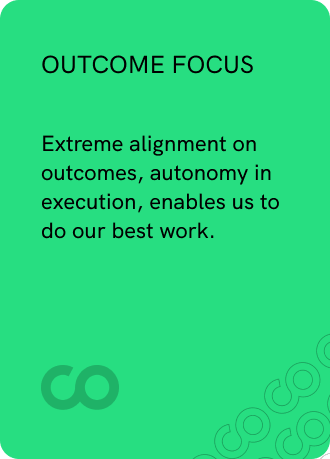
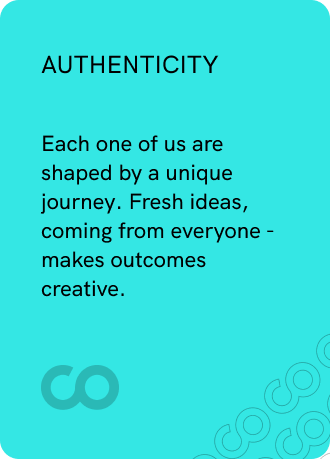
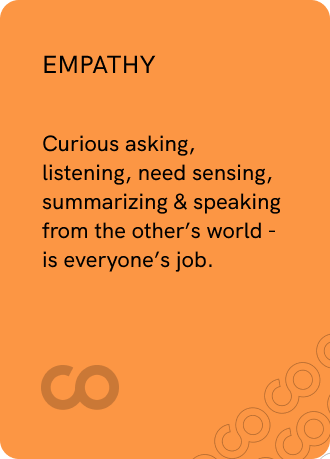
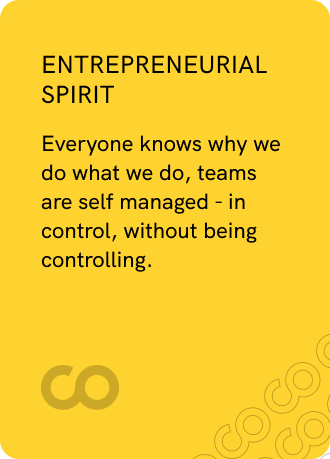
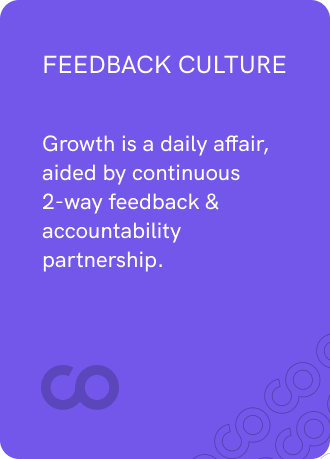
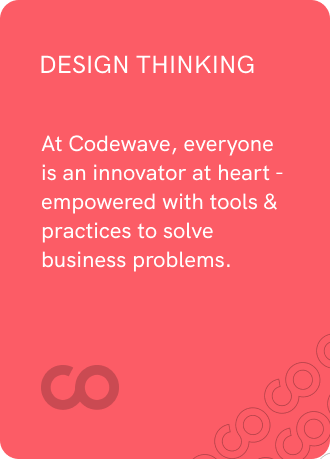
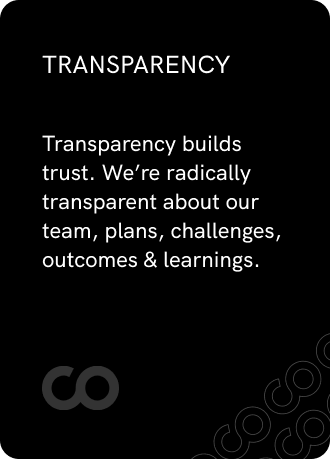
We transform companies!
Codewave is an award-winning company that transforms businesses by generating ideas, building products, and accelerating growth.
Frequently asked questions
Java is platform-independent, highly secure, and scalable. It supports multi-threading, automatic memory management, and vast libraries, making it ideal for enterprise applications, web services, and cloud-based solutions.
Java offers better stability, security, and scalability than many other languages. Its strong community support, cross-platform compatibility, and ability to handle high-performance applications make it a top choice for businesses.
Java powers enterprise software, web applications, cloud platforms, microservices, AI-driven solutions, IoT systems, and fintech applications. Its robust ecosystem ensures reliability for mission-critical applications.
Java provides built-in security features like authentication, encryption, and sandboxing. Frameworks like Spring Security and OAuth 2.0 strengthen access control, preventing unauthorized access and data breaches.
Outsourcing provides access to expert developers, cost efficiency, and faster time-to-market. A Java development company with industry expertise ensures high-quality, scalable, and maintainable applications.
Codewave specializes in custom Java development services, using microservices, cloud-native architectures, and AI-driven automation. Our solutions prioritize performance, security, and seamless scalability for business growth.
We follow an agile methodology, starting with business analysis, designing scalable architectures, and implementing optimized code. Our DevOps-driven approach ensures continuous integration, testing, and deployment.
We utilize Spring Boot for microservices, Quarkus for high-performance applications, and Hibernate for efficient database management, ensuring scalable and maintainable software solutions.
We implement OAuth 2.0, JWT-based authentication, and AES encryption to protect user data. Secure coding practices and regular security audits strengthen application defenses against cyber threats.
Yes, we build cloud-native applications using AWS Lambda, Kubernetes, and containerized microservices. Our solutions optimize performance, auto-scale workloads, and reduce infrastructure costs.
We optimize code execution with reactive programming, caching strategies, and database indexing. Performance monitoring tools like Prometheus and OpenTelemetry help detect and resolve bottlenecks proactively.
We develop Java solutions for healthcare, fintech, logistics, e-commerce, and IoT. Our tailored software meets industry-specific compliance requirements and business needs.































































